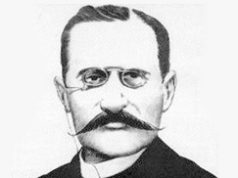Specific Objectives
Emphasize the role of Augustine as a consolidator and developer of Christian Philosophy with the help of Platonic philosophy.
Point out that Augustine in the Spiritist Codification:
1) Retakes some issues left to the dogmatism of his day and clear them in the light of Spiritism;
2) Updates concepts contained in his own work “Confessions,” the “thinking being” in this work becomes the being that reflects their own acts and actions at the end of each day, as in SB, question 919.
3) Augustine closes SB, conclusion IX with an exhortation to universal brotherhood. (STS)
Philosopher Augustine (Aurelius Augustinus – 354 to 430)
His influence in the development and consolidation of Christian philosophy in the Middle Ages until the rediscovery of Aristotle’s thoughts in the century XIII was immense and unparalleled. The approach that he developed between Plato’s philosophy and Christianity is the first great synthesis of Christian thought and Greek philosophy, the so-called Christian Platonism. His comments to the books of the Old and New Testaments are the main points of the exegetical and hermeneutical Western tradition. His philosophical and theological influence extended into the modern period the seventeenth century, becoming known as the century of Augustine.
Please also watch the films about Augustine: Sainte Augustine (Roberto Rosselini director) and Augustine (made by RAI), both in http://vervisaoespiritadareligiosidade.blogspot.com







